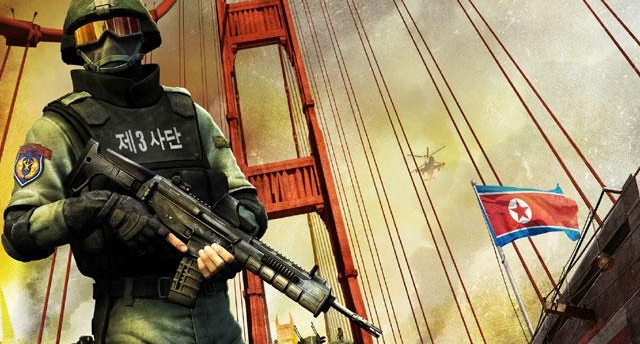
In my Homefront review, I complained that it didn’t seem very feasible that it was the North Koreans that attacked the USA instead of China. However, the prequel book Homefront: The Voice of Freedom goes into much more detail on the reasons why and how. It makes the idea of North Korea attacking a USA that is on its last legs way more plausible. I was admittedly impressed by how much the book focuses on this aspect, as in building up why things are as they are. Everything from geopolitics to the economics of the world, and the new scary tech within it. While it doesn’t reach the style of Tom Clancy fully, it gave me strong vibes of it.
Survival of a man
Although the book goes into the background lore and explains parts in depth, the core of the story rests on the man Ben Walker – experiencing his tale of the invasion and eventually joining the rebellion. I expected the novel to play things fast and loose with plenty of action scenes. But like the history of events leading up to the invasion, his character is also pretty well established. A big plus, since it made me invested in the tale, making me care for him and many of the other characters.
It starts rather low-key, with strange events that just can’t be true – North Koreans attacking the USA, this must be a joke, right? Ben Walker falls into the same trap as everyone else, and when crap hits the fan, he like many others is totally unprepared for the events to follow. The city is quickly thrown into chaos, and North Koreans are not the only ones Ben has to watch out for. Survival of the fittest is the new rule of the land, and this means questionable gangs have formed that don’t care who they hurt, just as long as they get their loot. It has a bit of a zombie book feel going to it, except the lead is not hiding from the undead, he is hiding from other humans that have the same intent as the walking dead.
About half the book is about Ben traveling the country to scavenge and find places to hide – just to stay alive, which is a lot harder than it seems. After he finally makes contact with the resistance, the tone shifts a little more towards action, but it never truly leaves its tragic apocalyptic tone. It is a struggle for survival, with all kinds of atrocities on display. Homefront: The Voice of Freedom is dark and brooding throughout and I loved this side of it. This leads me to…

A very bad dude
The main antagonist is a North Korean officer, making a life in the States as an undercover agent – patiently waiting for the order to go into action. This man is evil personified, almost to a comical level, yet he fits the grim atmosphere perfectly. A pretty substantial segment of the narrative follows him and his unpleasant deeds, which builds up his motivations fairly well. The officer makes for a good antagonist, because he is always there, following our protagonist close making his life (and the rebellion) a living nightmare. It’s textbook on how to make an intriguing bad guy. He comes off as an unstoppable force that had me questioning several times if Ben would even make it out of the story alive.
Conclusion
When I started to read Homefront: The Voice of Freedom I didn’t envision much, except for maybe a few entertaining action scenarios. However, what I got was much more in-depth than it has any right to be. The extensive foray into the lore was a pleasant surprise, and it made me appreciate Homefront (the game) more. Not that it changes my complaints about the gameplay and design, but it altered my view of the invasion, considering it makes more sense now. When it comes to characters and the story, I truly enjoyed this aspect as well. Care went in to create sympathetic characters, which makes their demise so much more impactful. The book doesn’t shy away from killing off important people, Game of Thrones style. A note of the action segments – they are elaborate with plenty of graphical details and gore. In other words: adrenaline-pumping, gritty, and exciting. So the novel even got that part right.
The structure of the narration worked well too, as it’s more or less a cross-nation journey from start to finish – where stopping for long means death. There is also an overhanging mystery involving the Mississippi River that has a nice payoff in the end. Overall, I found the book a delight. It’s not a masterpiece, far from it, but as a prequel, and a tie-in novel it does the job splendidly. I highly recommend it if you have played Homefront and want to know more about the setting, or are just in the mood for some apocalyptic combat on US turf.
Thanks for reading.
/Thomas
